Science Ticker
A roundup of research and breaking news
Sign up for our newsletter
We summarize the week's scientific breakthroughs every Thursday.
-
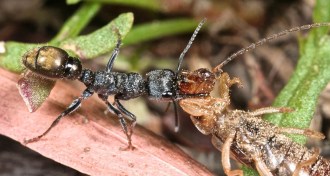 Animals
AnimalsHow desert ants navigate walking backward
Desert ants appear to use a combination of visual memory and celestial cues to make it back to the nest walking butt-first, researchers find.
-
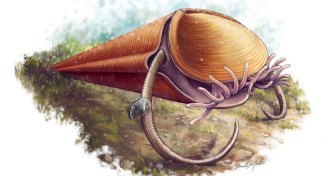 Paleontology
PaleontologyAncient oddball invertebrate finds its place on the tree of life
Ancient marine invertebrates called hyoliths may be more closely related to modern horseshoe worms than mollusks, a fossil analysis finds.
-
 Earth
EarthAntarctica’s Larsen C ice shelf nears breaking point
A fast-growing crack in Antarctica’s Larsen C ice shelf could soon break off a 5,000-square-kilometer hunk of ice into the ocean.
-
 Life
LifeBaby starfish whip up whirlpools to snag a meal
Starfish larvae use hairlike cilia to stir up water whorls and suck prey in close.
-
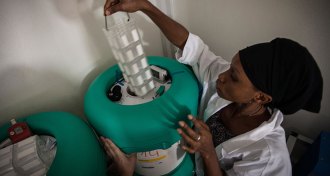 Health & Medicine
Health & MedicineEbola vaccine proves effective, final trial results show
The Ebola vaccine rVSV-ZEBOV proved effective at stopping the spread of the virus in a clinical trial in West Africa.
By Meghan Rosen -
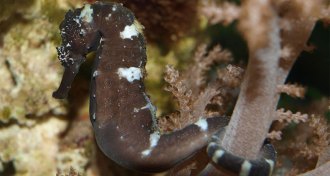 Animals
AnimalsGenome clues help explain the strange life of seahorses
Researchers have decoded the genetic instruction manual of a seahorse (Hippocampus comes) and found clues to its nearly 104-million-year evolutionary history.
-
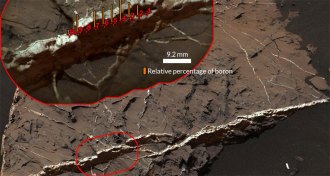 Planetary Science
Planetary ScienceFirst signs of boron on Mars hint at past groundwater, habitability
The Curiosity rover has found the first signs of boron on Mars, which could hint at past habitable groundwater.
-
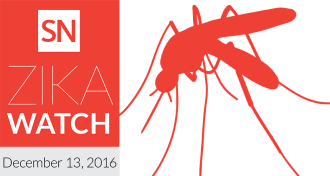 Life
LifeCell biologists learn how Zika kills brain cells, devise schemes to stop it
Cell biologists are learning more about how the Zika virus disrupts brain cells to cause microcephaly. Meanwhile, several strategies to combat the virus show preliminary promise.
-
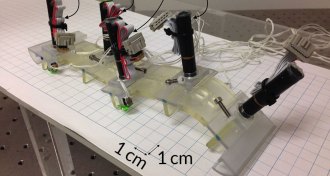 Tech
TechCaterpillar robot uses squishy, 3-D printed legs to inch and crawl
Squishy, 3-D printed legs help a caterpillar robot switch between inching and crawling, and offer sensory info about the world.
By Meghan Rosen -
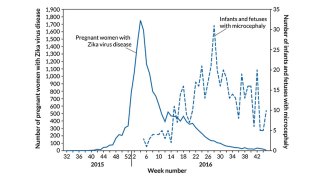 Health & Medicine
Health & MedicineMicrocephaly cases surge in Colombia following rise in Zika infections
More than 400 cases of microcephaly have been reported in Colombia this year, months after Zika virus infections peaked in the country.
By Meghan Rosen -
 Materials Science
Materials ScienceGraphene Silly Putty detects pitter-patter of spider footsteps
Sensor made of graphene and Silly Putty can detect pulse, breathing — and spider feet.
-
 Climate
ClimateSolar panels are poised to be truly green
Solar panels are about to break even on their energy usage and greenhouse gas emissions.